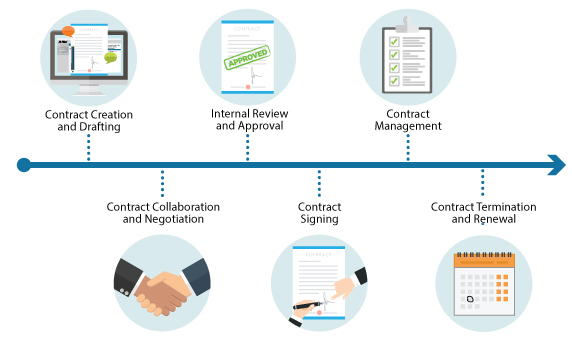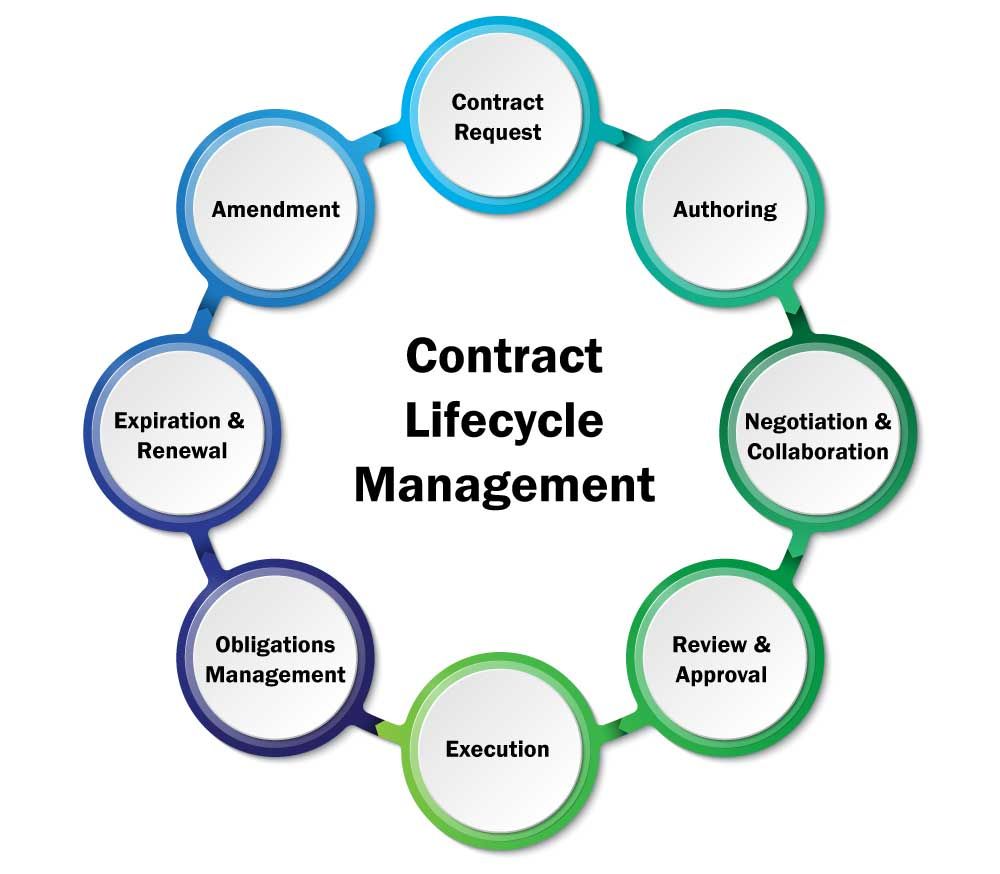Managing contracts is a neglected form of management. Managers frequently interact with employees, and some of those discussions and situations naturally relate to compensation. Contract management is the means of managing contract creation, execution, and analysis to maximize operational and financial performance at an organization, all while reducing financial risk.
Some of these communications will deal with contract management Skills. Different times, businesses need to manage contract deals with different businesses. It’s not talked about much, though contract management Skills, the plan is a relevant business topic. If you’re doubtful how the contract management process works, it’s essential to understand the basics.
Organizations find an ever-increasing amount of pressure to reduce costs and improve company execution. Contract management proves to be a highly time-consuming component of business, which promotes the need for an effective and automated contract management system.
Contract Management in Business Planning
It is the convention that takes place when two parties enter a contract with each other. Contract management manners must exist so that business arrangements endure sustainable. Businesses need to put checklists collectively so that all contract processes are perfectly outlined and documented.

Techniques for the Best Contract Management
It is imperative for business planning because it enables organizations to learn from their past errors using post-evaluation meetings and documentation. Here are six fundamental techniques to maximize your contract management process and continually make it better.
1. Points of Contact:
Set up a kick-off conference so that everyone associates who have an ultimate say regarding decision planning. Although having a senior director or someone from the board of directors to accompany every meeting is unnecessary, someone will need to be appointed to act on their behalf. Work out, if specified, if any questions need to be answered by an approving officer.
2. Work out on Basic Contract Relationship Needs:
Work out the contract relationship’s needs, then use the contract system to tailor these to the contract in question. And working out which documents might be needed, you will need to put together a scope statement and the deliverables, processes, and review period. Furthermore, make sure to gather everything you need from the other party to ensure the contract is complete and detailed as possible.
3. Outline the Review Manners:
When going through review processes, if you encounter bottlenecks, take action. It’s simple for customers to demand a quicker schedule, so allow yourself enough time to discuss, review, draft, and confirm deliverables. Agree on the analysis period length in the kick-off meeting. Please make particular the other party aware of revision deadlines and maintain its importance in processes and deadlines. Finally, make sure all arrangements are in writing.
4. Plan the Values of Obstacles:
Firstly keep in mind, time is money, so if a contract matures delayed or falls apart in its entirety, clients need to be aware of the costs, including wasted staff-hours. With this in mind, the range statement within the contract should contain wording encompassing change requests. And an actual definition for the term should incorporate information on how they are processed, how they affect timelines, and how much they will cost.
5. Document and Evaluate:
Once contracts have been signed, it is common to move on to the next project. Though, evaluation and post-execution will still need to take place. It should include a conference with other team members to analyze clauses, evaluate techniques used, and work out pain points. If similar events appear in the future, this can be useful for saving time. A library of post-execution files can be put collectively in the contract management system for this purpose.

Keys For Assurance the Best Contract Management
- Run a background check on the different parties so you know they can legislatively enter the contract.
- Work out the scope, documentation, processes, deliverables, review period, and crucial information needed from the other party.
- Work out who’s accountable for the significant determination making. Work out which questions require answering by an approving officer.
- Ensure excess of time to avoid bottlenecks, agree lengthy review periods previously, and hold parties responsible for delays.
- Appraise and document the project in a meeting with all team members. Provide a library of learning that can be included in the contract managements system.
- Let clients know the outcomes of delays on their behalf. Change requests can somewhat manage this.
How Can Contract Management Software Help?
A contract manager, regardless of their level of expertise, can only accomplish so much without efficient contract management software (CMS). Many laborious operations, including version control, search, storage, and reporting, as well as e-signatures, may be automated by businesses with the use of a solid CMS. Contract managers may expedite the creation, negotiation, and execution of contracts by using a good CMS, which can lead to improved operational efficiency, lower costs, and higher income.
Contract librarians shouldn’t also be contract managers. Automated software programmes can be useful. Some content management systems (CMS) provide a secure cloud-based contract repository with powerful search features and user permissions, giving qualified personnel the read-only ability to quickly identify only their contracts without disclosing other contracts. It is not a smart or efficient use of time to have contract managers manually save or retrieve contracts.
To assist contract managers in remaining on top of important contract dates and never forgetting an auto-renewal or expiry date, several systems also provide users the option to establish periodic email or calendar reminders. This can aid in risk management and the early renegotiation of unfavourable conditions for your company. The CMS is an effective tool for keeping contract managers organised.
Contract managers may use CMS to obtain insights into spend, vendor management, and contract terms and dates through customizable reports and adjustable dashboards. This not only keeps contract managers focused on their tasks but also promotes visibility and openness inside the company.

